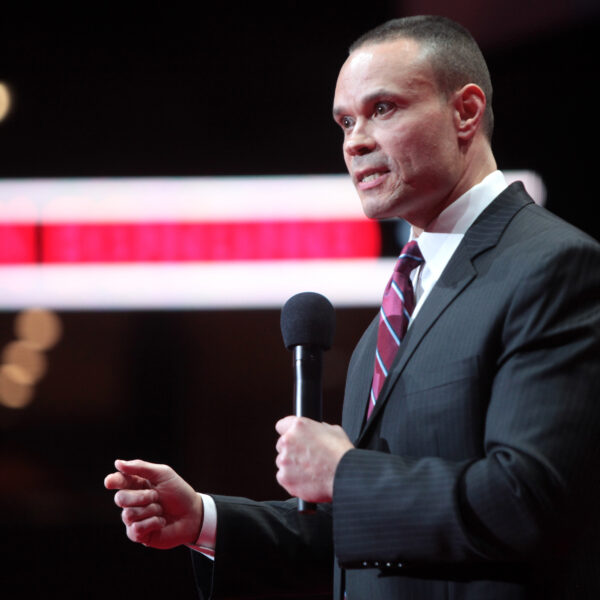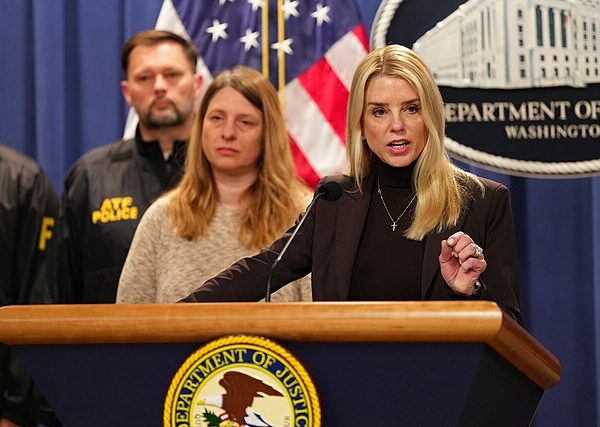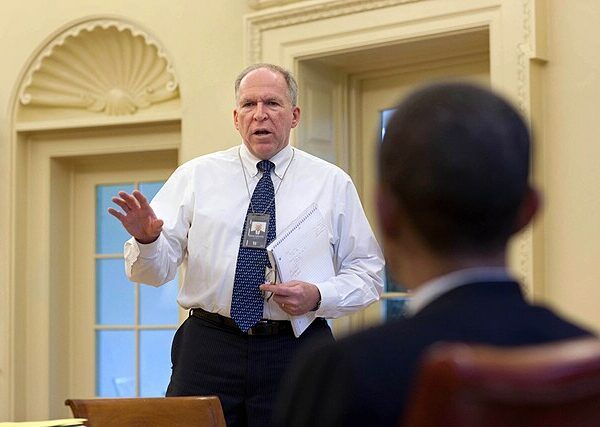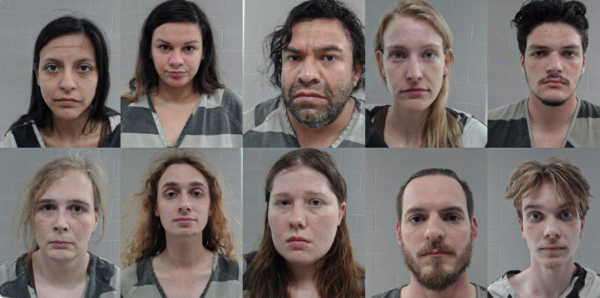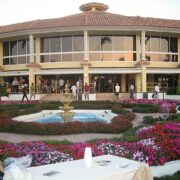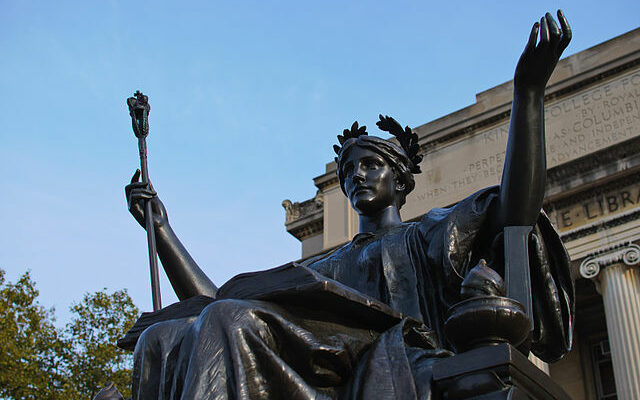
The leader of one of the most prestigious, and allegedly most antisemitic, universities in the country testified in Congress today over the rise in attacks against Jewish students that have occurred at Columbia University in New York. But one part of her testimony stunned the audience, and it had nothing to do with antisemitism.
The Guardian writes, “Minouche Shafik, the president of Columbia University, appeared beleaguered and uncertain as one Congress member after another assailed her over her institution’s supposed inaction to stop it becoming what one called ‘a hotbed of antisemitism and hatred.’
Wednesday’s hearing follows months of rising tensions between pro-Israel and pro-Palestinian demonstrators on the Columbia campus, amid disputes over what constitutes antisemitism and controversy about whether it should encompass anti-Zionism and opposition to Israel as a Jewish state.
The hearing of the House of Representatives’ education and workforce committee is being staged under the emotive title of ‘Columbia in Crisis: Columbia University’s Response to Anti-Semitism.’ A group of Jewish academics at the university have denounced the hearing in advance as heralding ‘a new McCarthyism.'”
As she did with the presidents of Harvard, Penn, and MIT, Elise Stefanik again stood up for Jewish students on campus. Earlier in the day, Shafik has claimed that she did not know of any anti-Jewish demonstrations on campus, but then altered her testimony, when pressed by the New York congresswoman.
Elise Stefanik forces Columbia President Minouche Shafik to change her testimony with Ilhan Omar:
ES: "Dr Shafik you answered one of the questions of our colleagues across the aisle, you said there has 'been no Anti-Jewish protests'. Do the other individuals on the panel agree… pic.twitter.com/zP6eXp4xwG— Eric Abbenante (@EricAbbenante) April 17, 2024
“Pressing relentlessly, Stefanik effectively drove a wedge between Shafik and her three fellow senior Columbia colleagues, David Schizer, Claire Shipman, and David Greenwald – all members of the university’s antisemitism taskforce – by leading them to testify that there had in fact been aggressive and threatening antisemitic statements in campus demonstrations,” the newspaper detailed.
The most shocking testimony, however, may have come from questions presented to the Ivy League president by Rep. Jim Banks, a Republican from Indiana. Apparently Columbia students, faculty, and staff, according to their president, are too stupid to know how to spell.
Rep. Jim Banks asked Minouche Shafik, the president of Columbia University, during a hearing about anti-semitism on college campuses why a guidebook given out to students at Columbia’s School of Social Work spells the word “folks” with an X, according to Real Clear Politics.
“I didn’t go to an Ivy League school,” Banks said. “Can you explain why the word ‘folks’ is spelled f-o-l-x throughout this guidebook and in other places throughout the school of social work?”
“They don’t know how to spell?” laughed Shafik. “I’m not familiar with that spelling.”
“You are denying that this is an official product of the school, but you are aware this is handed out to all of your students and you’re not doing anything to stop it,” Banks said. “Is this how Columbia University spells the word folks?”
“No,” Shafik said.
Rep. Jim Banks (R-IN) questions Columbia University President Minouche Shafik about a document that she says students distributed on campus:
Banks: “Can you explain why the word ‘folks’ is spelled 'f-o-l-x' throughout this guidebook?”
Shafik: “They don’t know to spell?” pic.twitter.com/nT8pq1Lqes
— The Recount (@therecount) April 17, 2024
The response got several guffaws from the audience, who knew she was obviously bordering on false testimony with her coy response. Stephen Miller, from the Spectator summed up the ridiculousness of the answer:
"Our students aren't woke activists, they are just dumb idiots who can't spell" is quite the answer. https://t.co/x8fmzsutPf
— Stephen L. Miller (@redsteeze) April 17, 2024
The Columbia president tried to write a prebuttal to her testimony in The Wall Street Journal, saying that antisemitism and calls for genocide have no place at a university and that her priority was to ensure the safety of her student population while ensuring room for press speech.
Shafik did not mention that students held a “talk” that celebrated plane hijackings on the campus just a few miles away from Ground Zero, instead, she wrote, “Oct. 7 was a day, like Sept. 11, 2001, that changed the world. None of us anticipated the horrific Hamas terrorist attack in Israel, nor the impact of those events across universities like Columbia and all of American society. The committee before which I will testify tomorrow is itself a diverse body, representing the broad spectrum of views that makes America unique in its tolerance of—and pride in—rigorous debate. That makes it not unlike a university, and it is my hope that we can begin to find common ground in finding solutions to antisemitism—not just to make college campuses safer and more welcoming to Jewish students, but for the sake of our democracy.
Since the Oct. 7 Hamas attack, I have spent the most of my time addressing its aftershocks. It is hard to describe how difficult this has been, especially on a large, diverse urban campus with students from all over the world and a long tradition of political activism.
For the thousands of Jewish and Israeli members of our community, the attack had a deep personal impact. Many knew people who had been killed or taken hostage. Indeed, to many in our community, Israel’s very survival appeared to be at stake. At the same time, for other members of our community, many of whom also have direct ties to the region, Oct. 7 and the ensuing war in Gaza were part of a larger story of Palestinian displacement, as well as a continuing and escalating humanitarian catastrophe. Not surprisingly, passions ran deep, demonstrations erupted, feelings were hurt, some members of our community were frightened and many more were concerned.
It is not the responsibility of Jewish people to eradicate antisemitism. That is a job for all of us. We must urgently and relentlessly fight this terrible form of hate. Universities, the great purveyors of education, must be leaders in fighting all forms of discrimination. That means shifting our focus from slogans toward education, community, compassion and human decency so that we can shape citizens who will become exemplars of a better society.”
What she didn’t get into, however, was whether her Ivy League university teaches the basics of reading and writing.
[Read More: Trump Supporter Sees Bank Account Closed Suddenly Without Warning]

